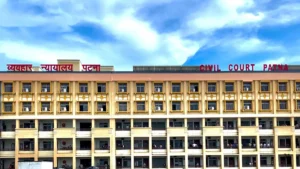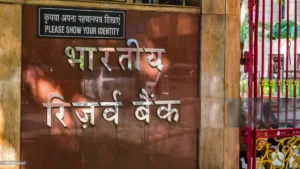Directions
(1-5): Which of the phrases (a), (b), (c) and (d) given below each sentence
should replace the phrase printed in bold letters to make the sentence
grammatically correct? If the sentence is correct as it is, mark (e) i.e.,
“No correction required” as the answer.
The two Koreas have been divided along the world’s most heavily fortified
border since 1950-53 ending Korean War
with an armistice, not a peace treaty.
(a)since
the 1950-53 Korean War ended with an armistice
(b)as
the Korean War has ended with an armistice since 1950-53
(c)after
Korean War ended during 1950-53 with an armistice
(d)because
the Korean War ended to an armistice during 1950-53
(e)No
correction required.
Q2.
The setting up of territorial nation-states in South Asia on the basis of
religious or ethnic identities cannot
bring any improvements in the lives of people.
(a)did
not bring up any improvement
(b)have
not brought about any improvement
(c)has
not brought in the improvement
(d)could
not bring any of the improvement
(e)No
correction required
Q3.
The annual election to choose five new non-permanent members of the UN Security
Council produced both the expected and
the near preposterous.
(a)has
produced the unexpected and the near preposterous
(b)has
been producing both the expected and preposterous event
(c)is
both the expected and near preposterous
(d)produces
both the expectation and near preposterous
(e)No
correction required
Q4.
Despite giving the fact that almost half
the work force in the country is
still engaged in farming, farmers’ woes are naturally an important electoral
plank.
(a)There
is a fact that almost half
(b)Giving
the fact that despite halving
(c)Given
the fact that almost half of
(d)The
fact that states almost half of
(e)No
correction required
Q5.
Tagore’s views on nationalism as expressed in his speeches in the US in 1916
and in China in 1924 as well were
severely criticizing by both these countries, although they were
appreciated by Albert Einstein and Romain Rolland.
(a)had
been criticized severely by both the countries
(b)were
severely criticized in both these countries as well
(c)was
severely criticizing in both these countries as well
(d)were
criticizing severely at both the countries as well
(e)No
correction required
Directions (6-15): In the following passage there
are blanks, each of which has been numbered and one word has been suggested
alongside the blank. These numbers are printed below the passage and against
each, five options are given. In four options, one word is suggested in each
option. Find out the appropriate word which fits the blank appropriately. If the
word written alongside the blank fits the passage, choose option ‘e’ (No
correction required) as the correct choice.
reports over the last few weeks admire (6)
that the Central government may finally be starting to think desperately(7) about jobs. Chief
Economic Adviser Arvind Subramaniam recently pointed to the need to achieve
higher economic growth, in the range of 8% to 10%, to solve the problem of idle(8). In particular, he alarm (9) the underperformance of the
information technology, construction and agricultural sectors, which earlier
served as huge job-creators for the economy. It is worth noting(10) that India added just 1.35 lakh jobs in eight labour-intensive
sectors in 2015, compared to the 9.3 lakh jobs that were created in 2011,
according to Labour Bureau figures. The rate of unemployment grew thorough(11) from 3.8% in 2011-12 to 5%
in 2015-16. Union Labour and Employment Minister Bandaru Dattatreya has embarrassed(12) the gloomy job
situation as being a temporary one. His focus instead is on the new National
Employment Policy which, he says, would be released later this year and fix(13) on shifting jobs from the
informal to the formal sector. NITI Aayog too has dismissed(14) concerns over jobless growth, saying the real problem
is enlistment(15) rather than
unemployment.
Q6.
(a)demand
(b)suggest
(c)
debate
(d)
proceed
(e)No
improvement required
Q7.
(a)lightly
(b)casually
(c)movingly
(d)seriously
(e)No
improvement required
Q8.
(a) motivation
(b)education
(c)luxury
(d)unemployment
(e)No
improvement required
Q9.
(a)strengthened
(b)enhanced
(c)flagged
(d)hailed
(e)No
improvement required
Q10.
(a)sensible
(b)certain
(c)responsive
(d)watching
(e)No
improvement required
Q11.
(a)steadily
(b)regularly
(c)fixedly
(d)conditionally
(e)No
improvement required
Q12.
(a)squashed
(b)abashed
(c)downplayed
(d)broken
(e)No
improvement required
Q13.
(a)readjust
(b)focus
(c)sight
(d)planned
(e)No
improvement required
Q14.
(a)restored
(b)
evade
(c)relieved
(d)forgotten
(e)No
improvement required
Q15.
(a)underemployment
(b)occupation
(c)assignment
(d)avocation
(e)No
improvement required
SOLUTIONS:
S1. Ans. (a)
Sol. “since the 1950-53 Korean War ended
with an armistice” is the correct phrase to replace the bold part as the
sentence is in the past tense. Hence (a) is the correct option.
S2. Ans. (b)
Sol. “have not brought about any
improvement” is the correct phrase replacement as the phrase “bring about” means to make something
happen, especially to cause changes in a situation. Hence (b) is the correct
option.
S3. Ans. (e)
Sol. The given sentence is grammatically
correct.
S4. Ans. (c)
Sol. “Given the fact that almost half
of” is the correct phrase replacement as it makes the sentence grammatically
correct. Other options are grammatically incorrect. So (c) is the correct
choice.
S5. Ans. (b)
Sol. As the sentence is in passive form,
“were severely criticized in both these countries as well” is the correct
phrase to make the sentence grammatically correct.
S6. Ans. (b)
S7. Ans. (d)
S8. Ans. (d)
S9. Ans. (c)
S10. Ans. (e)
S11. Ans. (a)
S12. Ans. (c)
S13. Ans. (b)
S14. Ans. (e)
S15. Ans. (a)
Download PDF of this English Quiz for IBPS PO 2020
Visit here to discuss all your queries related to Government Exams
Practice with Crash Course and Online Test Series for IBPS PO Prelims 2020:
- Bank Maha Pack (1 Year Validity)
- IBPS PO Prime Online Test Series 2020 by Adda247
- Complete IBPS 2020 exams Video Course




 Bihar Civil Court Peon Prelims Exam Date...
Bihar Civil Court Peon Prelims Exam Date...
 RBI Office Attendant Previous Year Paper...
RBI Office Attendant Previous Year Paper...
 RBI Office Attendant Exam Date 2026 Out:...
RBI Office Attendant Exam Date 2026 Out:...










